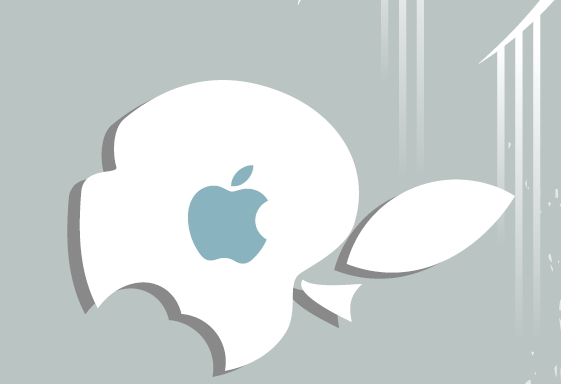How far could Apple fall?
Slowing sales, intimidating rivals and angry suppliers spell trouble for Apple Inc.
By Korea HeraldPublished : Oct. 31, 2012 - 20:09

Now there are questions about whether it could follow in the footsteps of RIM and Nokia, one-time industry leaders who are now becoming mere shadows of their former selves.
Apple certainly isn’t on its deathbed, far from it -- it’s still selling millions of phones and tablet PCs. Yet, many can remember the days when the company looked better.
On top of being hit by a double whammy of supply and sales woes -- U.S. mobile carriers like Verizon Wireless have had lower-than-expected sales of the iPhone 5 on supply constraints since the phone’s launch there in September -- it has to worry about its rivals that were once considered underdogs.
Notably, Samsung Electronics shipped more than double the smartphones of Apple in the third quarter of this year, according to ABI Research. Samsung sold 55.5 million units from July to September, compared to Apple’s 26.9 million. The sales fell short of experts’ forecasts that Apple would sell at least 28 million after having sold 35.1 million smartphones in the second quarter.
The $8.8 billion operating profit that Apple posted for the fourth fiscal quarter also fell short of experts’ expectations by about $1 billion.
Shortly after the earnings report was out, it was announced that Apple’s senior vice president of iOS software, Scott Forstall, would leave the company next year. John Browett -- head of Apple retail -- also will be leaving.
Some of the suppliers for Apple, meanwhile, have been unhappy for quite a while now. They have accused the company of mistreatment and of making unrealistic demands. Foxconn, one of the best known and biggest suppliers, has reportedly gone on strike. The Taiwanese electronics firm denied the reports.
Officials at other Apple suppliers appeared to rejoice at the news.
“Everyone knows that Apple mistreats its suppliers and keeps trying to push the prices down. It also wants all of its suppliers to comply exactly the way it thinks the manufacturing process should be. Maybe Apple won’t get its way anymore,” said one source, declining to be identified as he believed his firm may become a target for Apple.
“When we sign a contract with (Apple), it’s not for the money but for the fame,” said an executive at another of Apple’s suppliers who wished to remain anonymous.
But the narrowing profit figures are becoming tough to ignore.
“One of the mobile carriers that I met for a business meeting started to complain about Apple when the name popped up in our conversation,” the executive said. "Perhaps Apple thinks it can trample over others in this industry."
The hard feelings were evident enough in interviews with carrier company officials.
“When shipping prices are almost as high as the retail prices, as is the case of Apple, it becomes meaningless for carriers to sell them,” said one official.
He asked why carriers would want to try and sell iPhones when they could raise significantly more profit from selling, say, Samsung’s Galaxy series, which has become just as easy to use as Apple handsets.
“I use the Galaxy because sure, as some judge ruled, it’s slightly less cool than Apple phones and the iPad, but it’s good enough for me, really easy to use. And the after-sales services are great, no having to switch to repair phones or anything, so I’m cool,” said Kim Yong-hwan, a 22-year-old college student.
The company is now unable to meet its demand. It’s partly because people still like Apple devices, but another significant part of the reason is due to supply disruptions.
In Korea, Apple has indefinitely deferred the release of the iPhone 5, simply because not enough handsets are being made.
The presence of other global rivals is also weighing on Apple, industry watchers say.
Underdogs like Microsoft and Google are fast on Apple’s heels, and their business strategies are quite different.
Google, for instance, refuses to stick to a single model as Apple does, choosing instead to join hands with diverse electronics makers to roll out a lineup that offers a wider variety that consumers can select from.
What’s more, Google has Samsung, one of the strongest players in the smart device market, on its side as a partner in smartphones.
Microsoft is also currently launching international promotion campaigns to promote its new Windows 8 mobile platform, rolling out gadgets together with Samsung, LG, Sony, Lenovo, Asus and Toshiba among others.
By Kim Ji-hyun and Cho Ji-hyun
(jemmie@heraldcorp.com) (sharon@heraldcorp.com)
-
Articles by Korea Herald











![[AtoZ Korean Mind] Does your job define who you are? Should it?](http://res.heraldm.com/phpwas/restmb_idxmake.php?idx=644&simg=/content/image/2024/05/06/20240506050099_0.jpg&u=)







